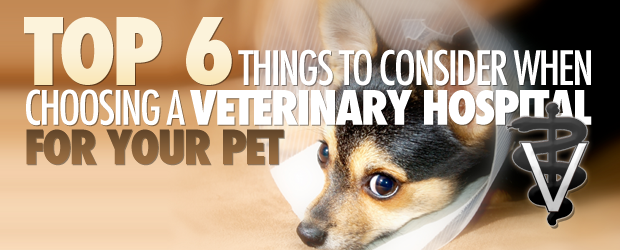Contents
- Pets are an important part of the family, and keeping them healthy is a top priority. When you are looking for a veterinarian for your beloved pet, keep this list in mind and you’ll find the right person to care for your non-human family members.
- 1 Experience and Specialization
- 2 Proximity and Availability
- 3 Facilities
- 4 Extra services
- 5 Fees
- 6 Rapport
- About the author: Katie is a veterinarian who has shared her home and workplace with dogs, cats, birds, fish and rodents over the past 20 years. She enjoys blogging and writing on behalf of Pet365, a UK based dog collars and pet supplies store.
Pets are an important part of the family, and keeping them healthy is a top priority. When you are looking for a veterinarian for your beloved pet, keep this list in mind and you’ll find the right person to care for your non-human family members.
Top 6 things to consider when choosing a vet:
1 Experience and Specialization
Some veterinarians have more experience in certain areas than their colleagues. If you own a snake, for example, a reptile specialist will be able to provide better care than a veterinarian who works mostly with dogs and cats. Even if you do own a common species such as a dog, there is often the need to look for a vet with some specialized knowledge. A dog that competes regularly in agility events may benefit more from the care of a vet who has an interest in sports medicine.
2 Proximity and Availability
The last thing you want to be doing is traveling for a long time to visit your veterinarian, especially if you have an emergency on your hands. Look for a veterinary clinic that’s within reasonable driving distance of your home. Make sure their office hours are convenient for you. If you work long hours during the week, you’ll appreciate a veterinarian who is available on Saturday mornings. Ask about their after-hours emergency services – who will you contact if your dog needs help when the hospital is closed?
3 Facilities
Some veterinary hospitals have more equipment than others, and this means that their patients don’t have to travel for advanced diagnostic tests such as ultrasound or endoscopy. Similarly, some hospitals have visiting specialists who can treat difficult cases in their hospital, which is much more convenient for their clients. You need to decide for yourself how important this is to you, and what level of service you’d like from your local veterinary hospital.

4 Extra services
If you have a busy lifestyle, you may like the idea of a “one stop shop” that provides grooming, training and boarding as well as veterinary care. The advantage of this is that your pet will become familiar with the hospital, and won’t be as stressed if they have to visit due to illness or injury. Similarly, the staff at the hospital will get to know your pet and their particular preferences, which will also make their visits more pleasant.
5 Fees
There’s no getting around it. Veterinary fees can be expensive, but treating a dog or cat requires the same level of skill, and the same equipment that is necessary to treat ourselves in hospital. The reality is that fees do influence our choice of veterinarian, but it shouldn’t be the only thing we look at.
6 Rapport
This is the most important influence on your choice of veterinarian, but you won’t know how you relate to a doctor or their staff until you visit them. Use the first five criteria to choose a veterinary hospital, then use your rapport with them to decide if you are going to stay. You need to be able to trust your doctor, and know that you can talk to them about anything.
- dog picture in Featured Image by garrison photography
- cat picture by Aljabakphoto

